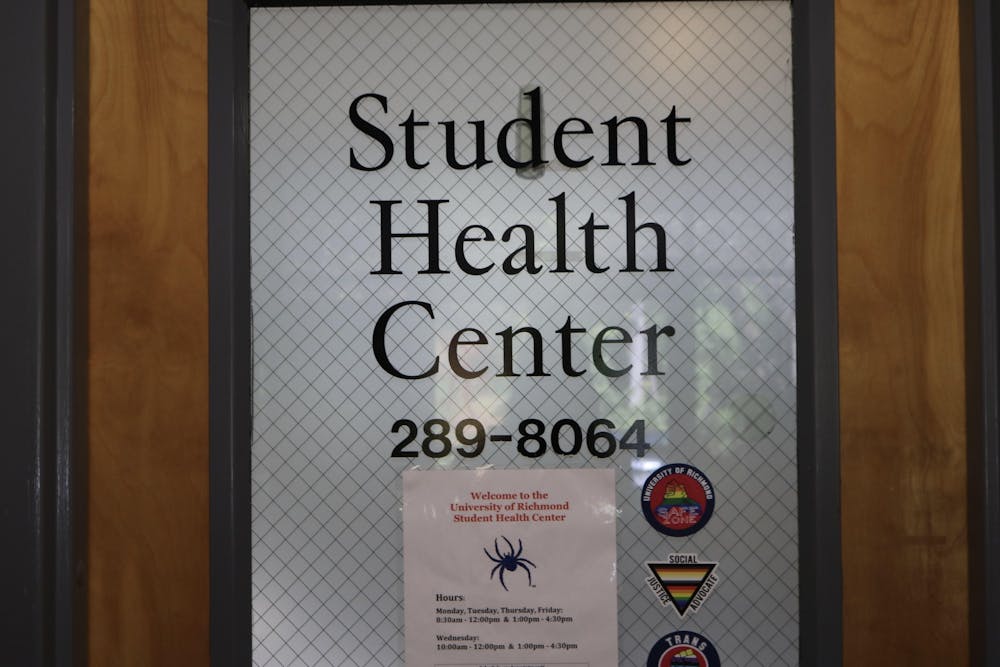The University of Richmond will suspend its classes through March 20 to give faculty members and staff members time to prepare for a likely transition to remote online instruction until at least April 3, according to an online announcement.
The update comes in the wake of the COVID-19 pandemic, a virus that has caused more than 100 universities across the United States to close its doors, transition to remote schooling and require its students to leave campus.
The majority of UR students are not currently on campus because of spring break. They are encouraged not to return, as UR can continue to support only a limited on-campus population, according to its website.
“If a student must return to campus to pick up belongings, we ask that they limit their time in their residence halls to no more than two hours,” according to the website.
Students who have extenuating circumstances that would require them to remain in on-campus housing, such as international students, must submit a petition by March 13, according to the website.
UR faculty members and staff members had been preparing for a broad range of emergency response scenarios since before spring break, as the COVID-19 situation in the U.S. and abroad continued to unfold.
On March 1, administrators cancelled all UR-sponsored international travel that had been scheduled to take place over spring break.
Many UR groups had been operating under the Crisis and Emergency Management Plan (CEMP), which provides UR with all-hazards guidance that is applicable to all phases of emergency management, according to the university website.
Linda Boland, director of the Teaching and Scholarship Hub, said a Remote Teaching Preparedness group had begun meeting on March 2. Boland, who serves on the group, said the RTP group was a collaboration with the Faculty Hub and Information Services to ensure UR has the technological support for remote teaching, if needed.
“We’ve been meeting regularly at least every other day and sometimes multiple times a day and lots of times by email and other methods,” Boland said in an interview on March 10.
Boland said the main change to campus resources would be campus-wide access to Zoom, a synchronous video conferencing service.
Boland listed some resources that would be accessible on the website.
Enjoy what you're reading?
Signup for our newsletter
“The best practices for use — Zoom, Panopto, Box sharing, Google drives, things like that,” Boland said. “The things that we mostly already have. The main new thing is a full university license for Zoom, which we were restricted in our use of it before.”
RTP is also working on how to adapt courses that test procedural skills, such as lab instruction, to remote teaching, Boland said.
“For instance, let's say your lab-based teaching involves a lot of students collecting data using instrumentation — specialized scientific instrumentation, collecting the data, analyzing the data and communicating the data,” Boland said. “Well, now they may not be able to use the instrumentation, but they could learn to use what the instrumentation can do by watching a video.”
Boland said students could still learn to interpret and communicate data if they are unable to collect it themselves.
“So they’re still getting the key intellectual components even if their hands are not moving the dials and pushing the buttons,” Boland said.
Richard Dagger, chair of the political science department, said that last week, during a regularly scheduled Arts and Sciences academic council meeting, Patrice Rankine, dean of the School of Arts and Sciences, had discussed plans for remote teaching.
“The dean took some time out to talk about what he called continuity planning,” Dagger said. “And he said that he encouraged faculty and students to download Zoom and learn how to use it. It’s available through IS. He talked about ways of possibly adapting course syllabi."
Dagger said he and other faculty members had received an email from Jeffrey Legro, executive vice president and provost, with updates on the continuity planning on March 4. Legro informed faculty of the work of the RTP group in the email.
“Sandra Joireman has convened a Remote Teaching Preparedness (RTP) group composed of staff from IS and the Faculty Hub,” Legro wrote in the email, which was obtained by The Collegian. “They are meeting every other day with the goal of having a plan and resources for remote teaching that will be accessible through a single webpage.”
Brittany Schaal, director of emergency management, serves as a member of the Executive Policy Group, which looks at high-level policy, and is chair of the Outbreak Control Team, which handles operations and logistics, for this particular incident, she said. She said both groups operated under CEMP.
Schaal said in addition to the aforementioned teams, there are other areas of campus involved with precautionary measures.
“You have all the departments that support the Crisis and Emergency Management Plan, which there is over 15 of them across campus that support response and recovery to whatever type of incident we might be having,” Schaal said. “They're doing their own planning as well.”
Schaal said examples of supporting groups include the custodial team, public safety, University Dining Services and the Office of International Education. All of these groups report to the Outbreak Control Team, Schaal said.
More information regarding whether UR will make the transition to remote teaching will be shared with the community next week, according to the website.
Contact editor-in-chief Jocelyn Grzeszczak and news writer Emma Davis at emma.davis@richmond.edu.
Support independent student media
You can make a tax-deductible donation by clicking the button below, which takes you to our secure PayPal account. The page is set up to receive contributions in whatever amount you designate. We look forward to using the money we raise to further our mission of providing honest and accurate information to students, faculty, staff, alumni and others in the general public.
Donate Now



